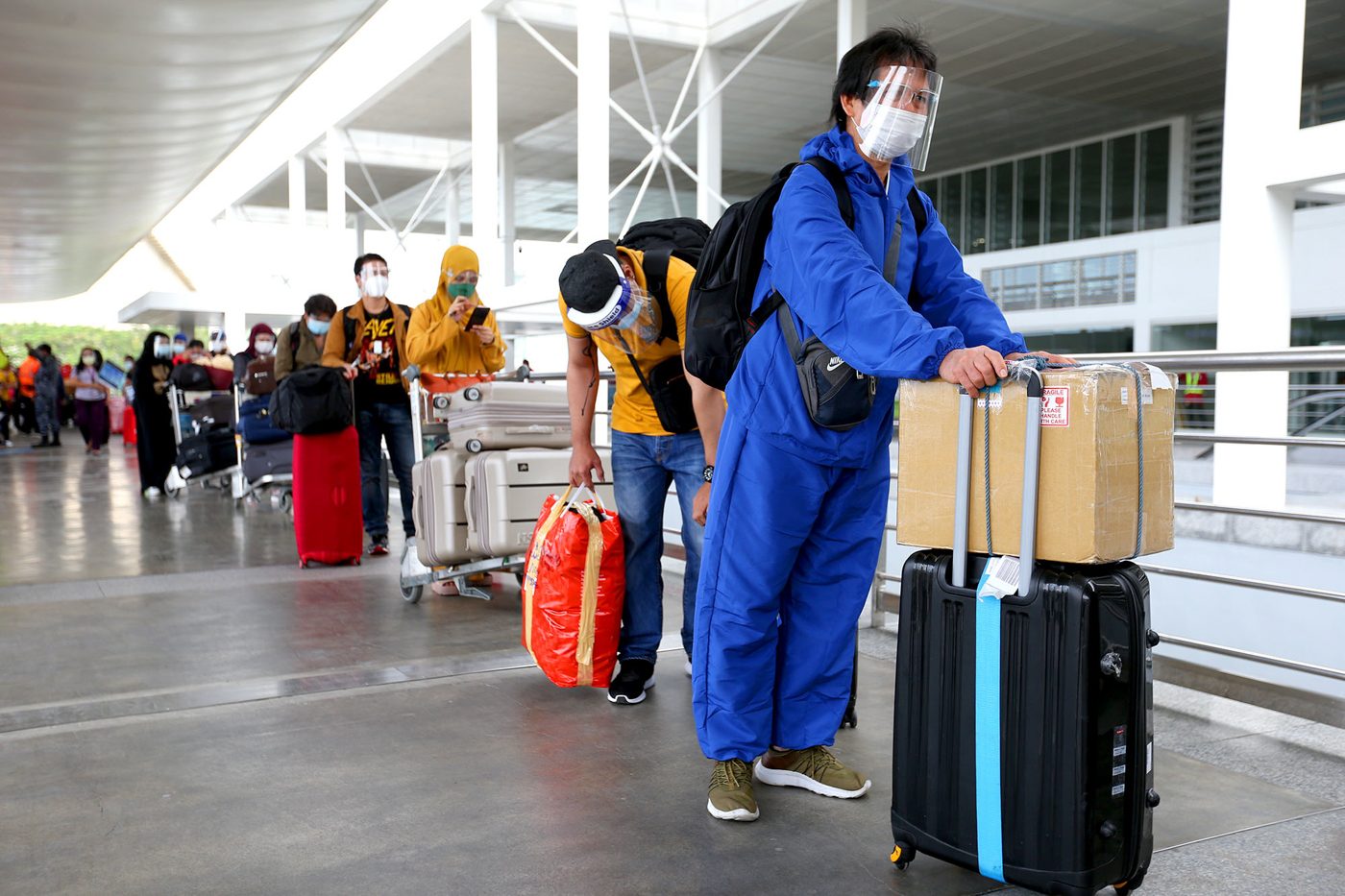SUMMARY
This is AI generated summarization, which may have errors. For context, always refer to the full article.

A year after a pandemic lockdown was first declared in the Philippines, many are itching to travel, whether to get a break from life at home or to reconnect with loved ones.
In the year that has passed, some travel restrictions have loosened while others are still in place. We break them down for you based on resolutions and pronouncements by the Inter-agency Task Force on Emerging Infectious Diseases (IATF-EID) and its officials.
But on March 16, 2021, the government again imposed new travel restrictions for foreigners and non-OFW returning Filipinos, temporarily suspending their entry into the country.
This means the earlier lifting of restrictions under foreign travel, mentioned below, no longer apply. (Read the March 16, 2021 advisory: PH suspends entry of foreigners, non-OFW returnees)
There are also new restrictions for arrivals at the Ninoy Aquino International Airport. Read the advisory here, as announced on March 16, 2021.
Domestic travel
- No more blanket testing requirement – There is no longer a nationwide requirement for a traveler to produce a negative RT-PCR (reverse transcription polymerase chain reaction) test in order to enter a province or city, according to IATF Resolution No. 101. However, the national government still allows local governments to require such a test. So before leaving for your trip, check with your local government of destination first. The document also says the RT-PCR test (or swab test) is the only type of test allowed to be required for travel by local governments.
- No more blanket quarantine requirement – No local traveler should be required to undergo quarantine “unless they exhibit symptoms upon arrival at the LGU of destination,” reads the same document.
- No need for travel authority, health certificates – Travelers no longer need to present a travel authority issued by Joint Task Force COVID Shield, a group of law enforcers that had been in charge of enforcing rules on interzonal travel. There is also no longer a national government rule requiring health certificates.
- Caveat: Though the national task force has loosened some restrictions, it is best to always check first with the local government, hotel, accommodation, or tourist site you are visiting if they have such requirements.
- Health protocols remain – Masks, face shields, and physical distancing are still required in ports, modes of transport, and travel destinations.
- Certain tourism activities allowed – Tourism sites, natural sites, parks, theme parks, cultural centers, museums, historical landmarks, and cinemas have been allowed to open in both general community and modified general community quarantine (GCQ and MGCQ), subject to rules imposed by local governments.
International travel
- Filipinos are allowed to travel abroad as long as they have the following: roundtrip tickets, health and travel insurance if traveling as a tourist, and a negative antigen swab test result 24 hours before departure. Additional requirements may also be imposed by the country of destination.
Entering the Philippines
- Foreigners with only tourist visas still cannot enter the country.
- Only certain foreigners, like diplomats, holders of treaty trader visas, seafarers, holders of Temporary Resident Visas, and others can enter. See the complete list here.
- The Philippines imposed travel bans on foreigners coming from over 30 countries at the start of year due to emerging COVID-19 variants, but these prohibitions have been lifted.
- Persons entering the country have to have a pre-booking at an accredited quarantine hotel or facility and get swab-tested on the 5th day after their arrival.
Editor’s Note: An earlier version of this story erroneously said that Filipinos are required a negative RT PCR test 24 hours before departure. This has been corrected.
– Rappler.com
Add a comment
How does this make you feel?
There are no comments yet. Add your comment to start the conversation.